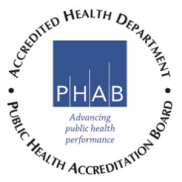What is HIV?
HIV (Human Immunodeficiency Virus) is the virus that causes AIDS (Acquired Immune Deficiency Syndrome). HIV enters the body usually as a result of unprotected sexual intercourse or other blood-to-blood contact with someone who already has the virus. HIV attacks and weakens the immune system by destroying helper T-cells, an essential part of the immune system. HIV is fragile and cannot survive long outside of the body.
- Over time, HIV disease damages the body’s immune system, allowing people to get life-threatening infections.
- When the body’s immune system is severely damaged by HIV, an AIDS diagnosis is likely to be made.
- A diagnosis of AIDS means that a person with HIV has an extremely low level of helper T cells or has certain illnesses.
- Only a healthcare provider can make a diagnosis of AIDS.
What is AIDS?
The term “AIDS” stands for acquired immunodeficiency syndrome. People who have AIDS have a defect in natural immunity against disease. People who have AIDS can get serious illnesses that would not be a threat to anyone whose immune system was functioning normally. These illnesses are referred to as “opportunistic” infections or diseases. AIDS is a late stage of HIV disease. There are medications that have helped people living with HIV or AIDS live longer, healthier lives. Some people have lived for more than twenty years and have taken medicines for more than ten years. But, there is no cure.
How is HIV transmitted?
HIV is found in blood, semen, vaginal secretions, and other body fluids of a person who is infected with HIV.
HIV is spread by sexual contact, needle sharing, or rarely, through transfused blood or its components. HIV may also be transmitted from an infected mother to infant during pregnancy, birth, or through breast feeding. The risk of infection with HIV is increased by:
- HIV can be transmitted by the exchange of infected blood, semen or vaginal fluids from one person to another.
- Sexual transmission of HIV occurs most frequently during anal or vaginal intercourse without the use of a latex condom.
- HIV can be transmitted by sharing contaminated needles or equipment to pierce, tattoo, or inject drugs.
- HIV can be transmitted during oral sex without a latex condom or other latex barrier.
- Infected women can transmit the virus to their babies during pregnancy or birth and in some cases, through breast milk.
HIV Infection cannot be spread by:
- Shaking hands
- Swimming pools
- A social kiss
- Toilet seats
- Cups
- Food
- Animals
- Insects
- Hugging
- Coughing
Donating Blood: In the U.S., it is impossible for a donor to get HIV from giving blood or plasma. Blood banks and other blood collection centers use sterile equipment and disposable needles. Each needle is brand new and used only once, then destroyed. The need for blood is great, and people who are not at increased risk from getting HIV are urged to continue to donate blood as they have in the past.
All donated blood has been tested for HIV antibody since March 1985 and for HIV viral particles (referred to as P24 antigen) since March 1996. Blood identified with HIV antibody or antigen is not used for transfusions.
Is HIV/AIDS a preventable disease?
HIV infection is preventable and there is a test to determine if someone is infected. However, since many infected people don’t get sick for years, they don’t get tested and unknowingly pass the virus to others during sex or by sharing needles.
If you abstain from sex or don’t share needles, you can eliminate your risk. If you chose to have oral, anal, or vaginal sex, you can reduce your sexual risk by:
- Not having sex with more than one partner or with men or women who do. The more partners you have the greater your chance of becoming infected.
- Avoiding sex with persons who are known to be infected with HIV and those who share needles or equipment to inject drugs, tattoo, or body pierce.
- Not allowing blood, semen, and vaginal secretions from your partner to enter your body through your mouth, vagina, or anus.
- Latex condoms, when used consistently and correctly, are highly effective in preventing the transmission of HIV. They should always be used during oral, vaginal, and anal sex.
- Using water based lubricants to prevent tears in skin or condoms during sex. Do not use petroleum jelly or other oil-based lubricants – they may cause latex condoms to break.
- Using the female condom (a polyurethane pouch that is inserted into the vagina). This may offer another option instead of a male-worn condom.
If you use injectable drugs:
- Do not share needles, cookers, or cotton when injecting drugs into our body. In the U.S., about 35% of all AIDS cases are related to injection drug use. Sharing needles or drug injection equipment shares diseases.
- To help prevent the sharing of needles, persons are allowed to buy up to 10 new syringes/needles without a prescription at certain pharmacies. Call the AIDS Hotline for information.
The following are recommended to prevent transmission of the virus:
- The only sure way to prevent sexual transmission of HIV is through abstinence.
Think and talk about HIV prevention before having sex. - When engaging in anal, vaginal, or oral sex, use a latex condom each time (do not re-use condoms).
- During sexual activity, avoid getting someone else’s blood, semen, or vaginal secretions into your body.
- Alcohol and other drugs impair judgment, which may lead to unsafe practices. To learn more about condom use and other protective measures, please contact the AIDS Hotline.
- If injecting drugs, do not share the needles (or cotton, syringe, and cooker). Use new needles or needles cleaned with full-strength bleach and rinsed with water each time.
- Women considering pregnancy should seek counseling to determine their risk.
Is HIV/AIDS a manageable disease?
Presently there is no cure for HIV/AIDS, but people can live for many years with HIV. As treatments develop, it becomes increasingly possible to treat HIV infection as a chronic but controlled condition. It is important to seek early treatment and counseling to help improve and prolong the quality of life. Currently there is a wide range of treatments available.
What is the HIV antibody test?
The HIV Antibody test is not a test for AIDS, but rather for the antibody that forms in response to the presence of HIV in the blood. The antibody can be detected in most people within six weeks to six months from the time of infection.
What does a negative test mean?
- A negative antibody test means that at the time of the test there was no presence of HIV antibodies found in your system.
- It is important to continue safer sex and needle practices.
- It does not mean that you are immune to future infection with HIV.
What does a positive test mean?
- A positive HIV antibody test means that you are infected with HIV. Your body is producing the antibodies (the immune system’s response to infection) to HIV.
- You do not necessarily have AIDS.
- A positive HIV antibody blood test result means you can infect other people with the virus.
What are HIV/AIDS Symptoms?
Most individuals infected with HIV have no symptoms and feel well. Some develop symptoms that my include tiredness, fever, loss of appetite and weight, diarrhea, night sweats, and swollen glands (lymph nodes) – usually in the neck, armpits, or groin. Anyone who has these symptoms for more than two weeks should see a doctor. The time between infection with the virus and the onset of symptoms of AIDS (the incubation period) ranges from a few months to ten years or more. Infected persons can spread the virus during the incubation period.
Early (weeks to months after exposure)
- Flu-like illness
- Swollen lymph nodes
Late (years after exposure)
- Persistent fevers
- Night sweats
- Prolonged diarrhea
- Unexplained weight loss
- Purple bumps on skin or inside mouth and nose
- Chronic fatigue
- Swollen lymph nodes
- Recurrent respiratory infections
Note: These symptoms are not specific for HIV and may have other causes. Most persons with HIV have no symptoms at all for several years.
What are some of the consequences/Complications of AIDS?
- Currently no cure available;
- most people eventually die from the disease (most live about 10 years after infection)
- Spread to other sex partners and persons sharing needles
Can I transmit HIV/AIDS to my baby during pregnancy or breastfeeding?
- HIV can be passed to unborn children from infected mother during pregnancy or childbirth
- Infected mother may infect infant through breast milk (rare)
What are some recommendations for reducing the spread of HIV?
- Latex condoms, when used consistently and correctly, are highly effective in preventing the transmission of HIV, the virus that causes AIDS
- Always use latex condoms during vaginal and anal sex
- Use a latex condom for oral sex on a penis
- Use a latex barrier for oral sex on a vagina or anus (dental dam or condom cut in half)
- Limit or avoid use of drugs and alcohol
- Don’t share drug needles, cotton or cookers
- Don’t share needles for tattooing or piercing
- Limit the number of sex partners
- Tests are available to detect antibodies for HIV through physicians, STD clinics, and HIV counseling and testing sites
- Notify sex and needle-sharing partners immediately if HIV-infected
What are opportunistic diseases?
Most AIDS patients studied have had one or both of two rare diseases; Pneumocystis carinii pneumonia (PCP), a parasitic infection of the lungs; and a type of cancer known as Kaposi’s sarcoma (KS). KS usually occurs anywhere on the surface of the skin or in the mouth. In early stages, it may look like a bruise or blue-violet or brownish spot. The spot or spots persist, and may grow larger. KS may spread to, or appear in, other organs of the body. PCP has symptoms similar to any other form of severe pneumonia, especially cough, fever, and difficulty in breathing. There are now drugs available to help prevent PCP. Other opportunistic infections also do occur and include tuberculosis, cervical cancer, candidiasis (thrush), mycobacterial infections, retinitis, toxoplasmosis, and cryptosporidiosis to name a few.
How is HIV/AIDS treated?
Currently, there are no drugs or vaccines available anywhere that have been proven to cure AIDS or prevent HIV infection, although the search for such a drug or vaccine is being pursued vigorously. Some drugs have been found that inhibit HIV replication in the body. Though no treatment has yet been successful in fully restoring the immune system of an AIDS patient, doctors have had some success in using drugs to treat the various illnesses of AIDS patients. The earlier a patient gets tested and treated, the more effective the treatment becomes.
Currently, a combination of therapies to combat the virus and restore the immune system has been the most effective treatment.
- No treatment or medication available to cure HIV/AIDS
- Early diagnosis and treatment can prolong life for years
- Medications and treatments available to keep immune system working
- Medications available to treat AIDS related illnesses
- Medications available for HIV infected pregnant women to greatly reduce the chance of infection to newborn
- Experimental
Links and Resources
- HIV and Viral Hepatitis
- HIV Testing
- HIV Prevention
- TB and HIV coinfection
- STDs and HIV – CDC Fact Sheet
- Información Básica Sobre El VIH – CDC
- Enfermedades de Transmision of Sexual – CDC
- Sexually Transmitted Disease (STD) Contact Tracing
- Partner Services
- STD & HIV Screening Recommendations
- Syphilis and MSM – Fact Sheet
- Congenital Syphilis – Fact Sheet
- STDs during Pregnancy – Fact Sheet
Contact Information
CDC-INFO
1-800-CDC-INFO (800-232-4636)
Phone: 1-888-232-6348
In English, en Español
CDC National Prevention Information Network (NPIN)
P.O. Box 6003
Rockville, MD 20849-6003
[email protected]
American Sexual Health Association (ASHA)
P. O. Box 13827
Research Triangle Park, NC 27709-3827
Phone: 1-800-783-9877
HIV Prevention Program
4815 W. Markham St., Slot 33
Little Rock, AR 72205
Phone: 501-661-2408
Fax: 501-661-2082
[email protected]


